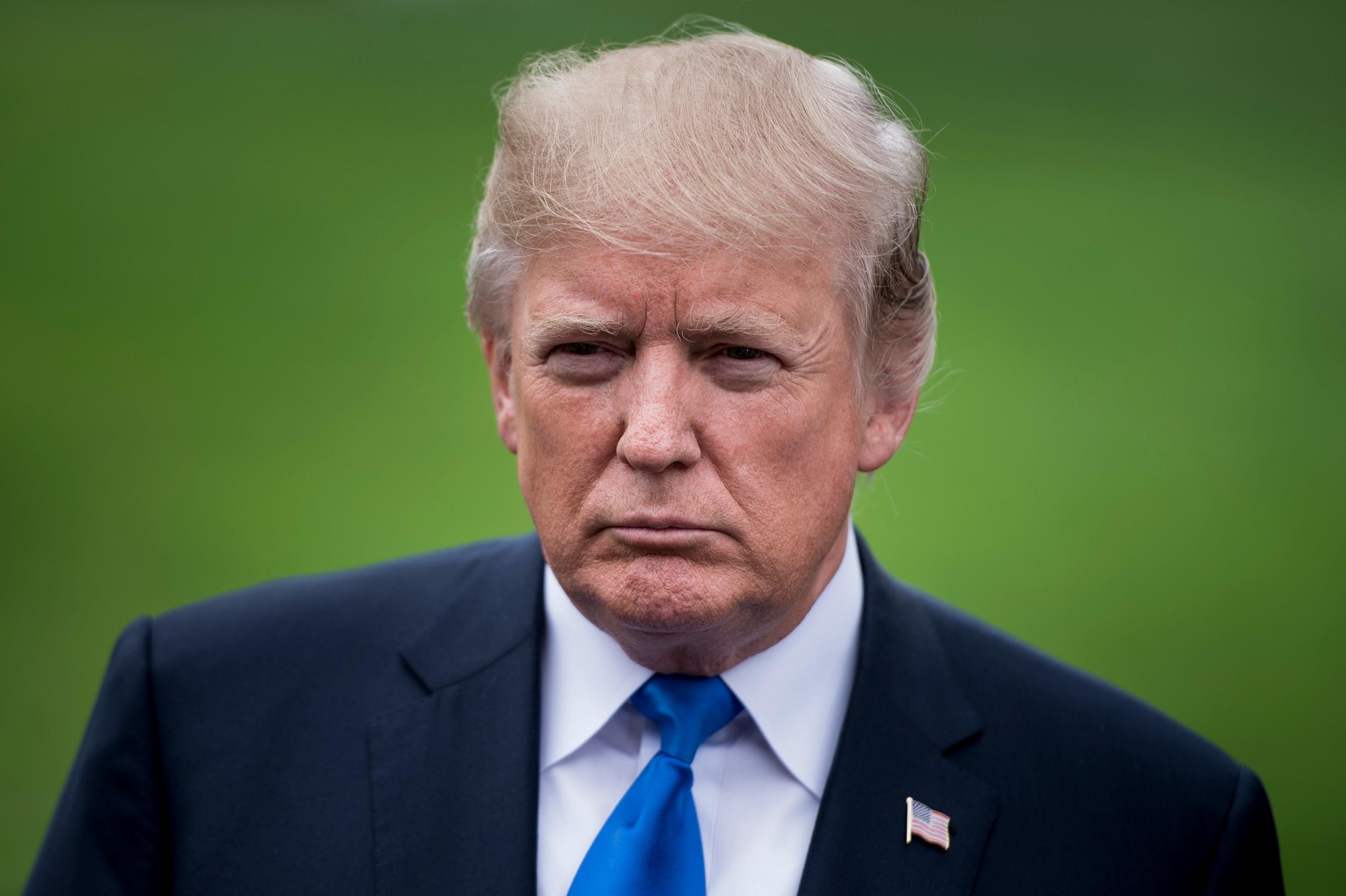Trump raises danger of war after move on Iran nuclear deal, Germany warns
'My big concern is that what is happening in Iran, or with Iran from the US perspective, will not remain an Iranian issue,' says German foreign minister

Donald Trump’s decision to not certify the nuclear pact signed with Iran could bring the danger of war close to Europe, Germany’s foreign minister has warned.
Mr Trump has given the US Congress days to decide whether to reimpose sanctions on Iran that were lifted in 2016 as part of the deal, and warned that he may seek to terminate the deal completely.
However, Foreign Minister Sigmar Gabriel said that if the US follows through on either of those options, then it could result in Iran developing nuclear weapons and raise the threat of conflict.
Speaking to Deutschlandfunk radio, Mr Gabriel said that Mr Trump had sent a “difficult and dangerous signal” when the US administration was also dealing with a crisis over North Korea’s nuclear ambitions.
A decision to walk away from the deal, which Mr Trump has said he would consider if things do not change, would be a boon to Iran’s hardliners who seek more protection from America, Mr Gabriel said.
“Then they might revert to developing nuclear weapons,” Mr Gabriel said, adding Israel would not tolerate that and “then we will be back where we were 10, 12 years ago with the danger of war relatively close to Europe”.
Mr Trump’s decision to refuse to formally certify that Tehran was complying with the 2015 accord, accusing it of violating the deal (even though international inspectors say it is meeting requirements), has set European allies on edge.
It has also drawn a stern rebuke from Iranian President Hassan Rouhani, who has accused Trump of making “baseless accusations” over the deal.
In response, Mr Trump said Iran was spreading “death, destruction and chaos” around the globe with its actions in Syrian, Iraq and Yemen.
Mr Gabriel said that the impression that Mr Trump would give if the US pulled out of the deal – which entails Iran putting limits on its nuclear energy programme in return for sanctions relief – may make others think about nuclear weapons.
“My big concern is that what is happening in Iran, or with Iran from the US perspective, will not remain an Iranian issue – but many others in the world will consider whether they themselves should acquire nuclear weapons too, given that such agreements are being destroyed,” Mr Gabriel said.
“And then our children and grandchildren will grow up in a very dangerous world,” he added.
The deal was hailed by Barack Obama as key to efforts for peace in the region and beyond, and was also signed by China, France, Russia, Britain, Germany and the European Union.
In that regard, Mr Gabriel urged the United States not to endanger the security of its allies and its own people for domestic policy reasons.
The decision not to certify the Iran deal comes at the end of a week in which Mr Trump has sought to fulfil some of the promises he made on the campaign trail for the presidency. Walking away from the Iran deal, or at least getting tougher with Tehran, was one such promise.
Another was the repeal and replacement of Mr Obama’s signature health legislation, the Affordable Care Act, known as Obamacare. With the Republican-led Congress struggling to pass new legislation, Mr Trump took action into his own hands by signing an executive order to begin dismantling parts of Obamacare.
He said the new order will increase competition and reduce insurance premium costs, but critics say it will destabilise the markets, with younger people being lured by cheaper plans forcing premiums up for the sicker people left on Obamacare plans.
The order also removes subsidies for insurers, which critics say could mean higher premiums for low-income people.
On Saturday, Mr Trump tweeted that he is “very proud” of the executive order, with stocks in health insurance companies having “plunged” after he signed it.
The moves over the Iran deal and Obamacare, as well as the social media feuds over critical coverage by the media, and the ongoing debate about whether NFL players should stand for the national anthem, are all things that will play well with Mr Trump’s base support. And in that respect, Mr Trump will believe he has had a good week.
Join our commenting forum
Join thought-provoking conversations, follow other Independent readers and see their replies
Comments